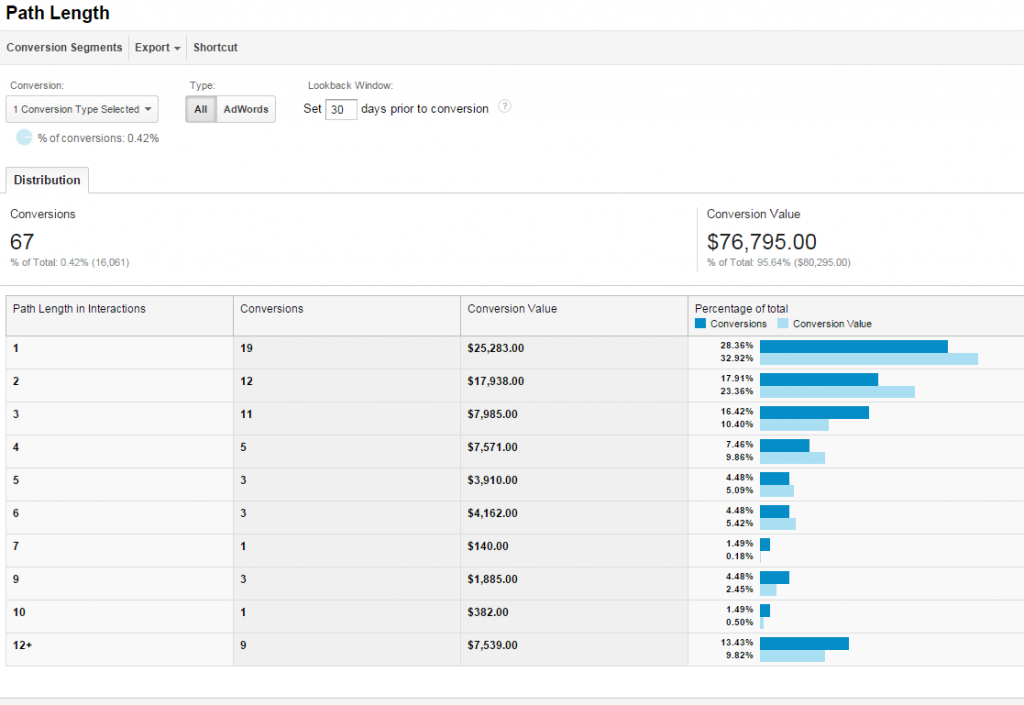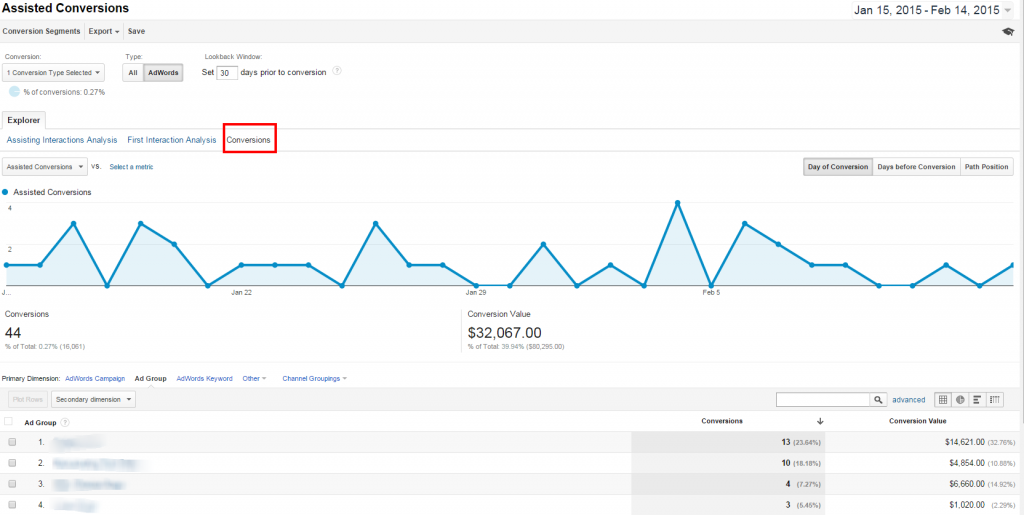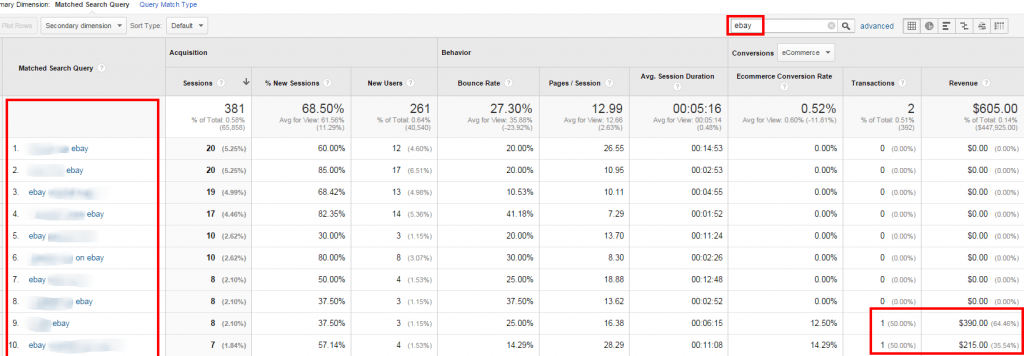You have a luxury e-commerce site, your site is up and running, you have several digital marketing channels working, but your PPC campaigns are just not bringing in the sales you expected.
You spent your evenings and weekends learning more about PPC management and picked up loads of tactics from best practices guides. But at the end of it, none of these are specific to your industry and it’s hard to put it all together.
Well, good news! We are working on a series of PPC tips for luxury e-commerce sites, so you can get very relevant tips about how to manage PPC for your specific industry. Now let’s start right here with our very first tip.
Tip #1: Do not use Broad Match keywords whenever possible
It’s usually a good idea to use some Broad Match keywords within any account, because they help us find high performing search queries that we can target with phrase or exact match types. Unfortunately when your managing a luxury e-commerce PPC account, broad match keywords usually have lower conversion rates and cause excessive waste.
The reason behind this is that luxury products are usually more niche than regular products and searchers often use specific branded terms to narrow down their search to find those luxury products. If your product demands a heavy premier over the more economic choices then using broad match will target the majority instead of the smaller percentage of people that are willing to pay premium.
Let’s use an example of an e-commerce site that sells Gucci handbags. If you are targeting the broad keyword Gucci handbag, it will trigger your ads for a range of search queries, and many of them won’t be relevant to your product. Because it’s broad match even the use of the word Gucci does not mean it has to be included in the search query. You can get much more relevant visitors by using phrase match key-phrases such as “Gucci handbags” or “Gucci purses”. Using the phrase match will make sure the entire phrase is used in the search query in order for your ad to trigger.
Use Modified Broad match instead
If you are a savvy PPC manager and still want to discover new search terms to target, then the next best alternative is using modified broad match.
Continuing with the luxury handbag example, instead of using broad match keyword: Gucci Purse
Start using modified broad match: +Gucci +Purse
This will make sure your ads are not triggered for irrelevant terms. Instead they are triggered if the those 2 words are used in the search query even if they are in a different order or in different parts of the search query.
Tip #2: Don’t trust Last Interaction Conversions
The conversions attributed in most PPC platforms such as Google AdWords show the last interaction conversions. This means that Google AdWords will count a conversion for the very last keyword the visitor clicked before making the purchase.
Due to the inherently long purchase cycle of luxury products, it is highly recommended to not make your decisions based on this type of attribution. It’s more likely that the visitor has come to your site from several keywords before making their purchase. So it’s misleading to give all of the credit to the last keyword they clicked.
Now if your wondering how your suppose to confirm this, I can recommend a powerful tool.
Step 1) Go to your Google Analytics account and click on the Conversions Menu > Multi-channel Funnels > Path Length.
Step 2) Now click the “All” button underneath the conversions drop down and select only the goal you have set for purchases.
Step 3) After you will see the number of interactions in the left column and the percentage of visitors who purchased within the first, second, third interaction and so on.

Path Length Report in Google Analytics
In the example above you can see that only ~28% of purchases were done in the first interaction, and the remaining purchases took multiple interactions to complete. Because we can see multiple interactions were made for the majority of sales, it’s advised to give credit to more than just last interactions.
A side note — even the 1st interaction percentage is inflated because a visitor switching devices right before making a purchase will show up as a 1st interaction purchase.
Now that we know why not to trust last interactions, let’s look at how we can make a much better decision.
Start using assisted conversions
The most involved way to solve this “crediting” issue is by using the attribution model comparison tool in Google Analytics. This tool allows you to understand how using different attribution models will change the credit each keyword, ad group or campaign is given for conversions.
If your interested in this more involved process, I recommend you read Kaushik’s post on attribution modeling to fully understand the nitty-gritty before making any changes.
But if you don’t want to invest time in understanding attribution modeling, a very quick way to move beyond the basic last interaction attribution is using the conversions tab in the “Assisted Conversions” page in Google Analytics (Shown below).

Assisted Conversions in Google Analytics
This method gives credit to each part of your campaign for any interaction, whether an assist or a last interaction. Although this is not the most ideal method for attribution, it is much better at showing you how individual parts of your campaign are contributing to purchases. It is also a much better tool for making decisions than the last interaction conversion in AdWords.
Tip #3: Analyze Performance of competitors’ Brand Name in Search Queries
Many times your Competitor’s brand name is used in searches for specific pages on competitor sites. For example “Nike shoes Ebay” or “iphone 5S amazon” are queries that are used by searchers to quickly access the site’s category or product pages instead of going to their home page and doing the search.
The danger in these searches is that they often trigger the Ads for e-commerce sites that are using the product specific terms for their keywords.
Although your Ads are relevant to these searches, the consumers maybe already committed to purchasing the product on your competitors site. For this reason it’s recommended to analyze competitor brand name terms in Google Analytics > “AdWords Search Queries” page to see if any of this traffic is turning in to purchases.

Competitor related Search Queries
Above we simply searched for “Ebay” in our search query report and can see 2 transactions from 381 session. Next we can compare the cost of this traffic with the total revenue and decide if it’s worth it. Simply searching these reports for your main competitors’ brand names will show you if budget is being wasted.
After the analysis there are few ways to control this traffic:
- If this traffic has high conversions then you can add and bid higher on the top search queries to get even more of this traffic. Just be careful not to use DKI for your Ad Text, otherwise you will get in trouble for unlawfully using your competitor’s name in your Ads.
- If the traffic converts very similar to the campaign’s average conversion rate, then you can leave everything as is and repeat this analysis on a monthly basis depending on the cost of this traffic.
- However if these competitor brand name keywords are performing poorly, it’s best to either add them as keywords and lower their bids. Or just adding them as negative keywords for you campaign. It’s best practice not to immediately right them off as bad traffic and add them as negative keywords, because there may be something you can add or change on your landing pages that can completely change the results.
Tip #4: Setup longer membership duration for remarketing audiences
This tip is assuming that you are already using remarketing as part of your PPC strategy. And if your not, it’s a good idea to do so since luxury products take much more consideration to purchase. And one of the best ways to keep your brand and products in the consumers mind is to setup highly targeted remarketing campaigns. However an important part of creating remarketing is the duration a visitor stays in your audience list.
We have to be aware that the purchase cycle of luxury products is usually much longer then every day consumer products. For this reason it’s a good idea to set your audience’s membership duration between 30 to 45 days.
And if you want to take your remarketing campaigns to the next level, then consider creating 2 separate lists based on duration.
For example, you can create one audience with 1-30 days membership duration and another for 30-45 days. Then you can set a higher bid for the 1-30 day audience and lower bid on the 30-45 days audience. This will allow you to position ads higher for visitors that recently visited your site and then lower the position after the 30 days.
Tip#5: Create landing pages for Product Categories.
Many e-commerce sites use their search result pages or product filter results instead of creating targeted landing pages. This may work as a temporary solution or for certain low profit products, however a well designed landing page is much more effective in converting visitors.
This is especially the case for luxury products because consumers need much more information and reassurance to go forward with the purchase. There are many great sources out their for optimizing landing pages and it’s best to study several before moving forward with landing pages creation.
Some major points to consider when creating landing pages:
- Focus on writing about the benefits of the product not just the features
- Include rich media such as images and video
- Show customer testimonials (3rd party testimonials are trusted more compared to self-hosted)
- Keep written content very short and to the point
- Answer common questions consumers may have about the product
- create Powerful call-to-action and make sure the action is the next natural step in the purchase cycle
- Keep the load time under 2 seconds (Avoid slow loading scripts and heavy assets on the page)
If you have many different category of products, you can start with the most profitable ones. Your overall goal is to have a unique landing page for at least each Ad Group in your PPC campaigns.
We hope that you find these tips helpful and more relevant to managing your e-commerce site’s PPC campaigns. Please do comment below if you have any questions or want to share any of your own tips.

